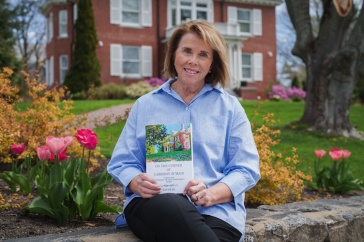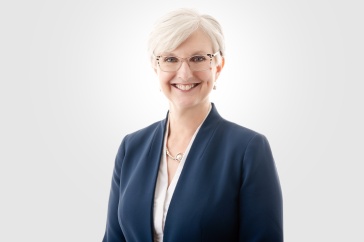
Before his death on February 21 following a two-year battle with esophageal cancer, Amos Townsend led a fulfilling life as a family man, physician and humanitarian. He had been married for 61 years to Doree Connelly Townsend ’54, with whom he raised eight children: Byron, Mike, Anna Phan ’80, Jennifer Shea ’82, Nell Wirtes, Matthew, Amy Dicosmo and Tom. The couple also had 22 grandchildren and eight great-grandchildren. Townsend served in the military for 20 years and left a legacy of volunteer work in Southeast Asia and in his native New Hampshire.
After graduation, he received his medical degree from Dartmouth and began a career as a U.S. Air Force flight surgeon. He served in Phu Cat and Pleiku, Vietnam, from 1969 –71 and after retiring from the service with the rank of colonel spent more than five years in Thailand working with the International Rescue Committee to assist Southeast Asian refugees. “He worked with local health clinics and orphanages,” says Doree. “He tried to help them give the best possible care.” Townsend was also on call at hospitals and dental clinics throughout refugee camps in the region and was chief of staff at the hospital in the main camp in Nongkhai.
Among the refugees Townsend helped was Sinthy Kounlasa. Originally from Laos, Kounlasa met Townsend when she applied for a job as a secretary and interpreter. He put her to work immediately.
Refugees crowded into Townsend’s small office asking for assistance in immigrating to other counties. “I was very impressed to see how much time he spent talking with and interviewing each and every one of them,” says Kounlasa. “He was respectful, kind and patient.” Townsend dictated countless letters encouraging other countries to take in refugees, especially those who had lost limbs in the war. Each recommendation letter explained in detail why, far from being a burden, the refugee had much to offer a new country.
Kounlasa planned to follow other family members to France, but when Townsend offered to sponsor her and her family in the United States instead, she jumped at the opportunity. In 1982 Doree returned to the United States with the Townsends’ three youngest children and helped Kounlasa file the necessary paperwork to travel. When Kounlasa, her husband and two children, and her mother-in-law arrived in Durham, they stayed with Doree for a few weeks before moving into their own apartment. It was the beginning of a new life for Kounlasa, who today is an administrative assistant in the Peter T. Paul College of Business and Economics. Her family was one of two that temporarily lived with the Townsends, who also sponsored and housed many individual young people from Vietnam, Cambodia and Laos who had fled their war-torn countries.
Townsend also volunteered with groups working to determine the plight of American POWs and MIAs. He became close to many families whose loved ones did not return from the war and kept in touch with them over the years. “After his death I received so many letters from families he had helped, all expressing their appreciation,” says Doree.
When Amos returned to New Hampshire, the Townsends settled in Lee, where he became active in the Lee Congregational Church, joining Doree in the choir, serving as a deacon and cheerfully “doing all the little jobs that came up,” says his wife.
Townsend played football throughout his four years at UNH, including the 1950 season that saw the team complete a perfect 8-0-0 season and win the Yankee Conference Championship, and remained an ardent UNH football fan throughout his life. In 1983 the university honored his distinguished career as a humanitarian with the Pettee Medal, its highest award.
Originally published in UNH Magazine Fall 2016 Issue
Comment on this article.
-
Written By:
Karen Tongue Hammond '64 | UNH Magazine
















































